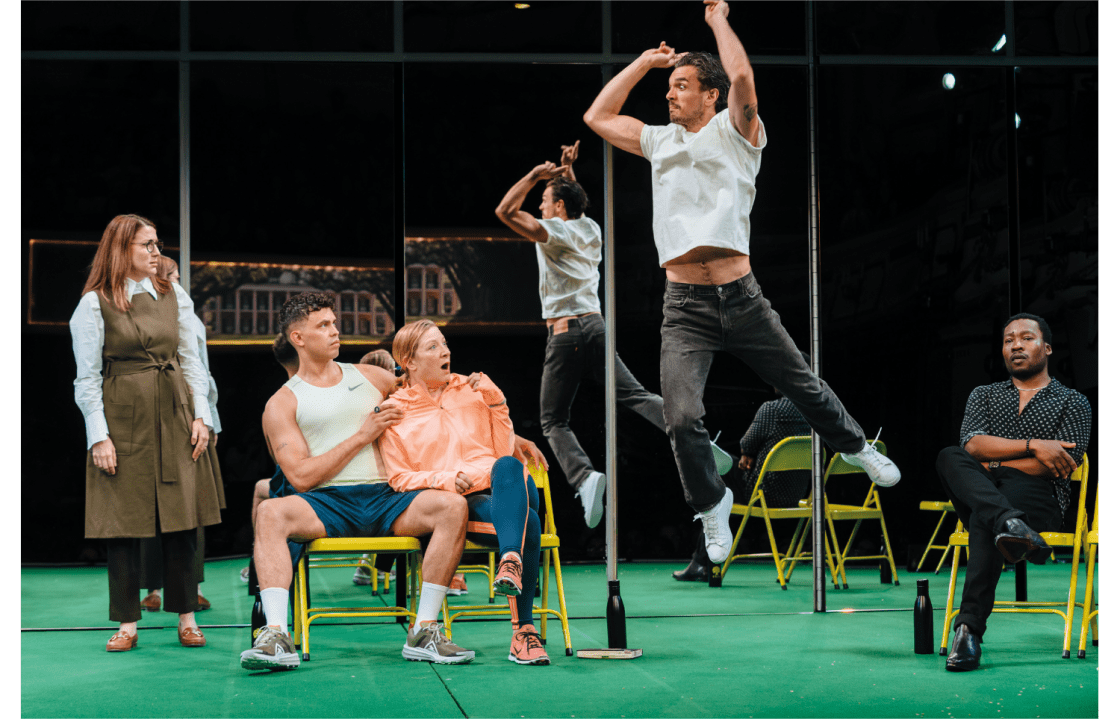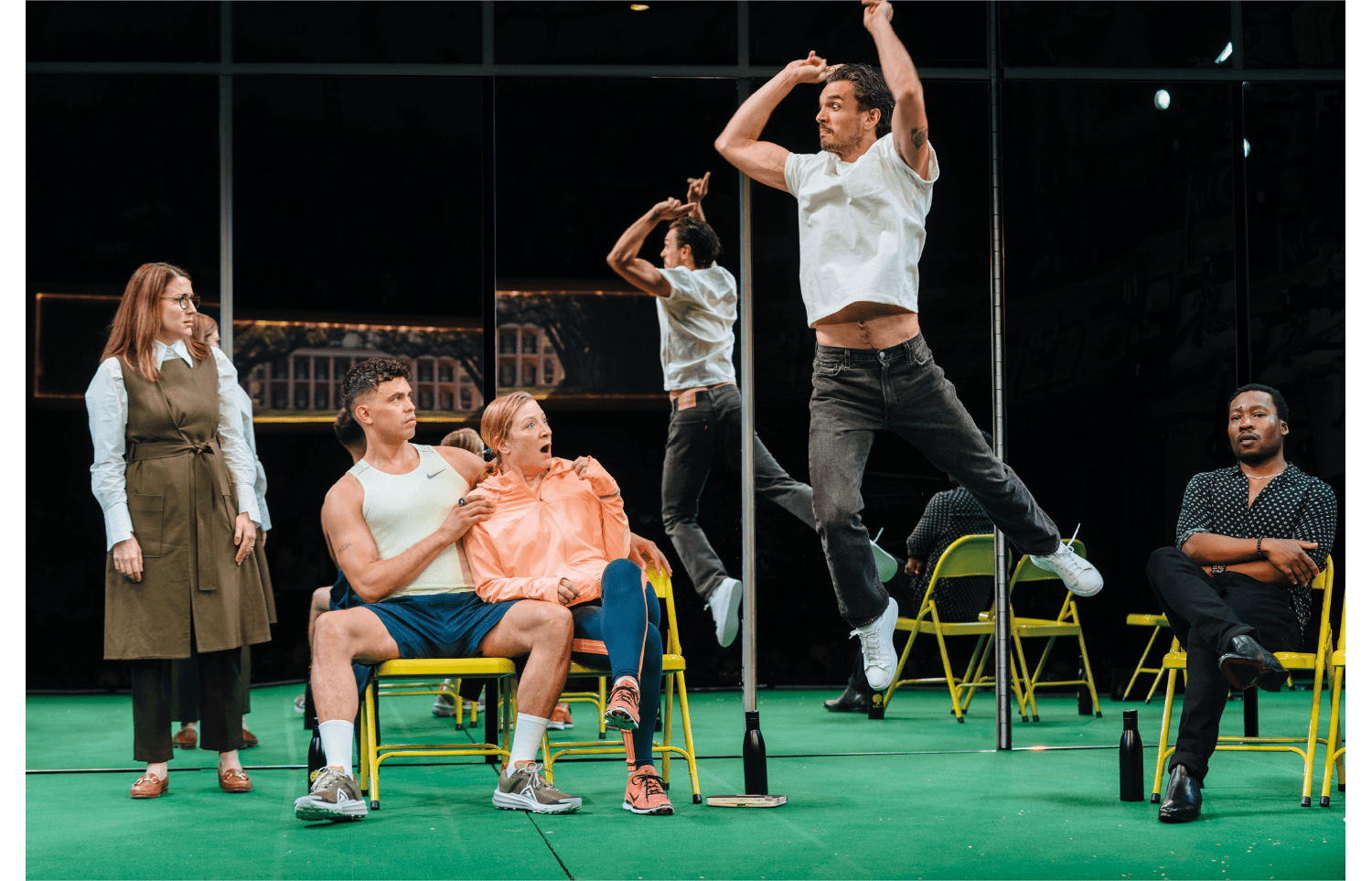Slave Play is a series of hoaxes. The producers announced that ‘Black Out’ performances would be reserved for ‘black-identifying’ playgoers but the ticketing system is colour-blind and these so-called ‘segregated’ shows were attended by audiences of all ethnicities. The PR gambit generated lots of free publicity, but these stunts don’t always translate into ticket sales.
The second hour involves screeds of impenetrable psychobabble as the couples bicker and moan
The show appears to be a drama set in the Deep South before the American civil war. It opens with a white farmer humiliating his black cleaner, who easily outsmarts him. When he forces her to eat fruit from the dirty floor she tells him how delicious it tastes. Angered, he cracks his whip but he strikes himself painfully on the nose. The mood turns romantic and the pair start to have wild and consensual sex on a wooden table.
The next scene, apparently unconnected, features a southern belle in kinky leather gear ordering her black footman to play the violin as she romps suggestively on a four-poster bed. She produces an artificial black phallus – ‘my mother had it before me’ – and asks her footman if he enjoys being penetrated. A third scene involves a black farmhand abusing a white co-worker near a hay cart. Suddenly, with a burst of disco music, the scene turns into a gay rollick as the two farmhands have sex and teach one another how to perform fellatio.
This obviously isn’t a show about 19th century America – so what is it? Enter two instructors in modern dress who tell the six actors to break character and to take a rest. Are we watching a play within a play? No, that’s another hoax. This is a therapy session and the performers are romantic couples trying to resolve their differences through erotic role-play.
The antebellum setting is a new technique devised by the female instructors, one black, one white, who are collecting material for a college thesis. The pair are a lesbian couple, of course. To explain this ludicrously complicated set-up takes an hour of stage-time and the second hour involves screeds of impenetrable psychobabble as the couples bicker and moan about the woes of choosing a mate from a different race. For the audience, it’s hard to get involved with furious, screaming lovers who are on the verge of breaking up. And the script feels very samey. The writer, Jeremy O. Harris, has crowded his stage with characters who all sound and feel identical – a beginner’s blunder. Game of Thrones star Kit Harington plays a snotty, over-educated Brit who scolds Americans about their pronunciation. His partner (Olivia Washington) spends the entire therapy session glaring silently in a corner until she erupts into a volcanic parody of the ‘angry black female’. The play seems to reinforce the caricatures it sets out to diminish. The lesson of the show is that some bigots choose partners from a racial group that they secretly revile in order to neutralise their racism. An experiment that inevitably will never work.
After Sex by Siofra Dromgoole is a relationship drama that feels like a bulletin from the front line of the modern dating scene. The characters, Her and Him, are free of the torments and scourges that beset many youngsters. They don’t moan about workplace bullying, racial bigotry, sexual abuse, financial oppression, mental health problems, climate anxiety or drug addiction. In other words, they’re normal. What a relief. But the play has difficulty moving beyond its opening premise.
After Sex is a relationship drama that feels like a bulletin from the front line of the modern dating scene
The couple are colleagues who enjoy a fling after an office party and continue to see each other over the following months. It’s not quite a full relationship but it’s more than a casual romance. She wants the affair kept secret and he agrees. But he has no choice as she is his boss. The conflict between the office and the bedroom doesn’t develop, and the relationship stays rigidly within the confines of the love-nest. The couple spend a lot of time exchanging questions as if following instructions from a dating manual. ‘Tell me your favourite book, your greatest fear, your secret sexual fantasy, your survival strategy on a desert island.’
She appears to be the intellectual powerhouse of the pair; she quotes e.e. cummings from memory and orders him to read a ‘queer theory’ classic, Epistemology of the Closet. He’s a secretive type and his best friend is his mother, whom he telephones daily. Eavesdropping on these calls, she hears him
telling his mum that he doesn’t have a girlfriend. After this, she dumps him. ‘OK,’ he says tersely, hiding his pain. Then she announces that she dumped him as a trick to test his reaction.
Would a lover behave that cruelly? When she reveals that she’s expecting a baby, he imagines that she’s playing another of her mind games. This is a promising apprentice piece but no more.









Comments